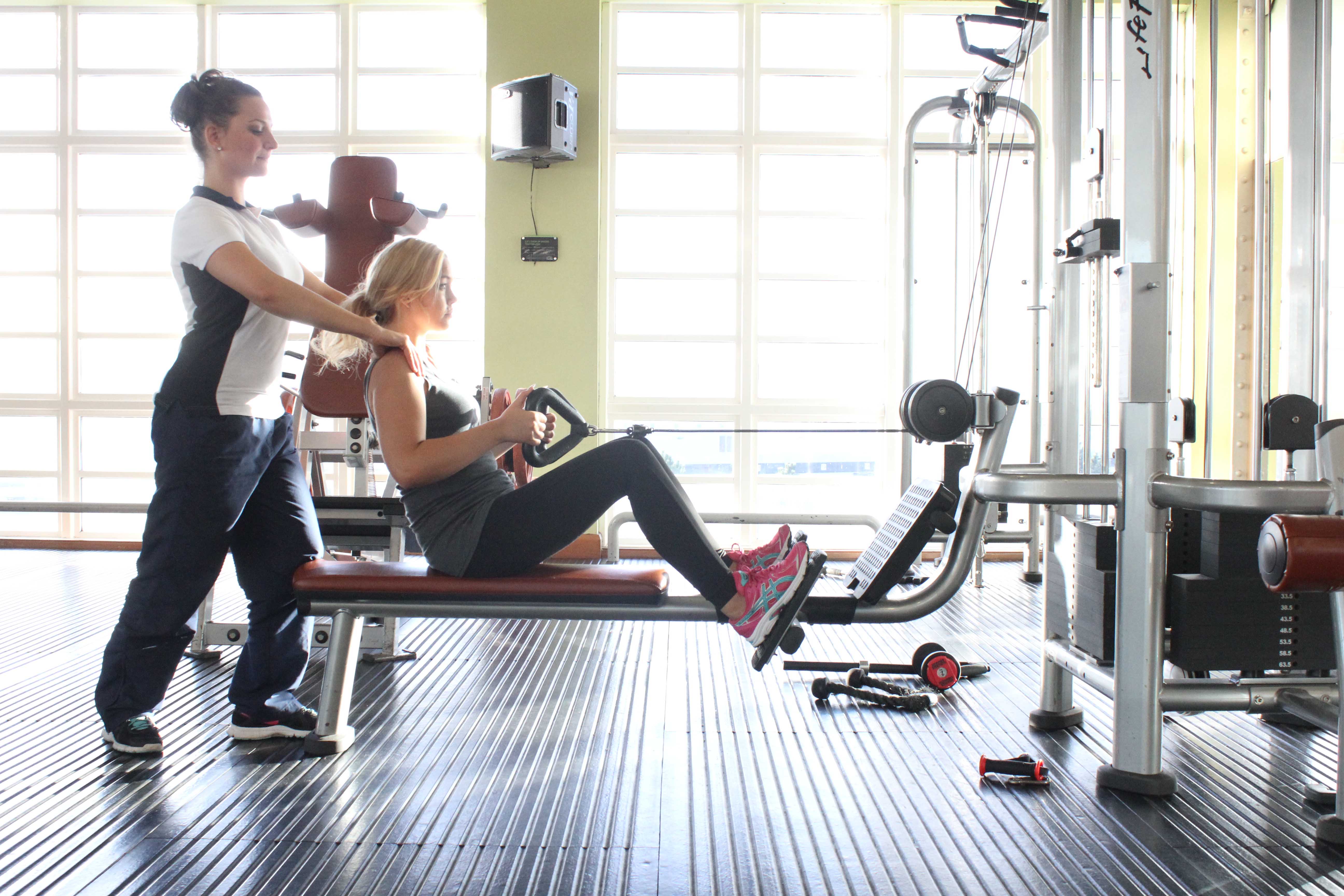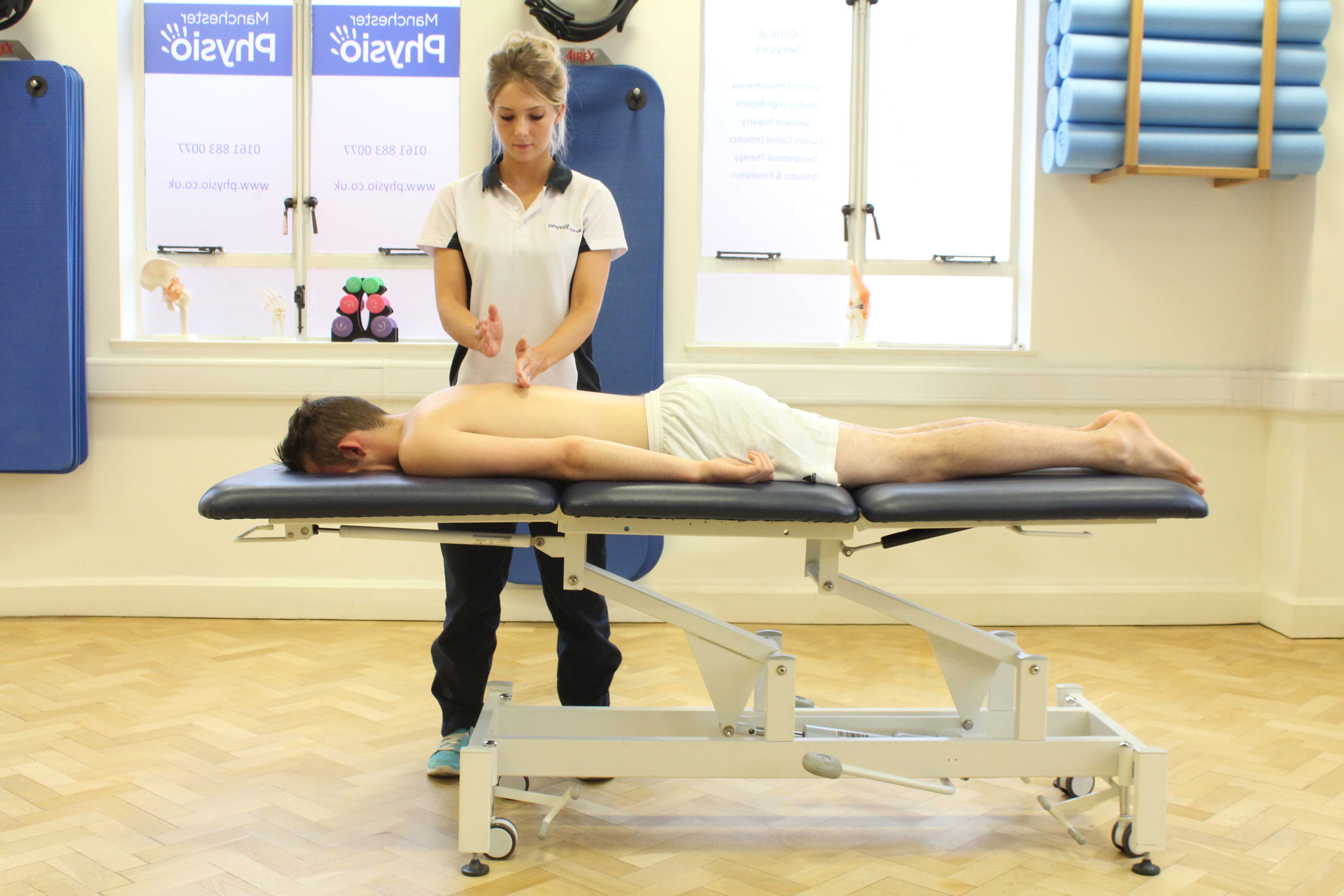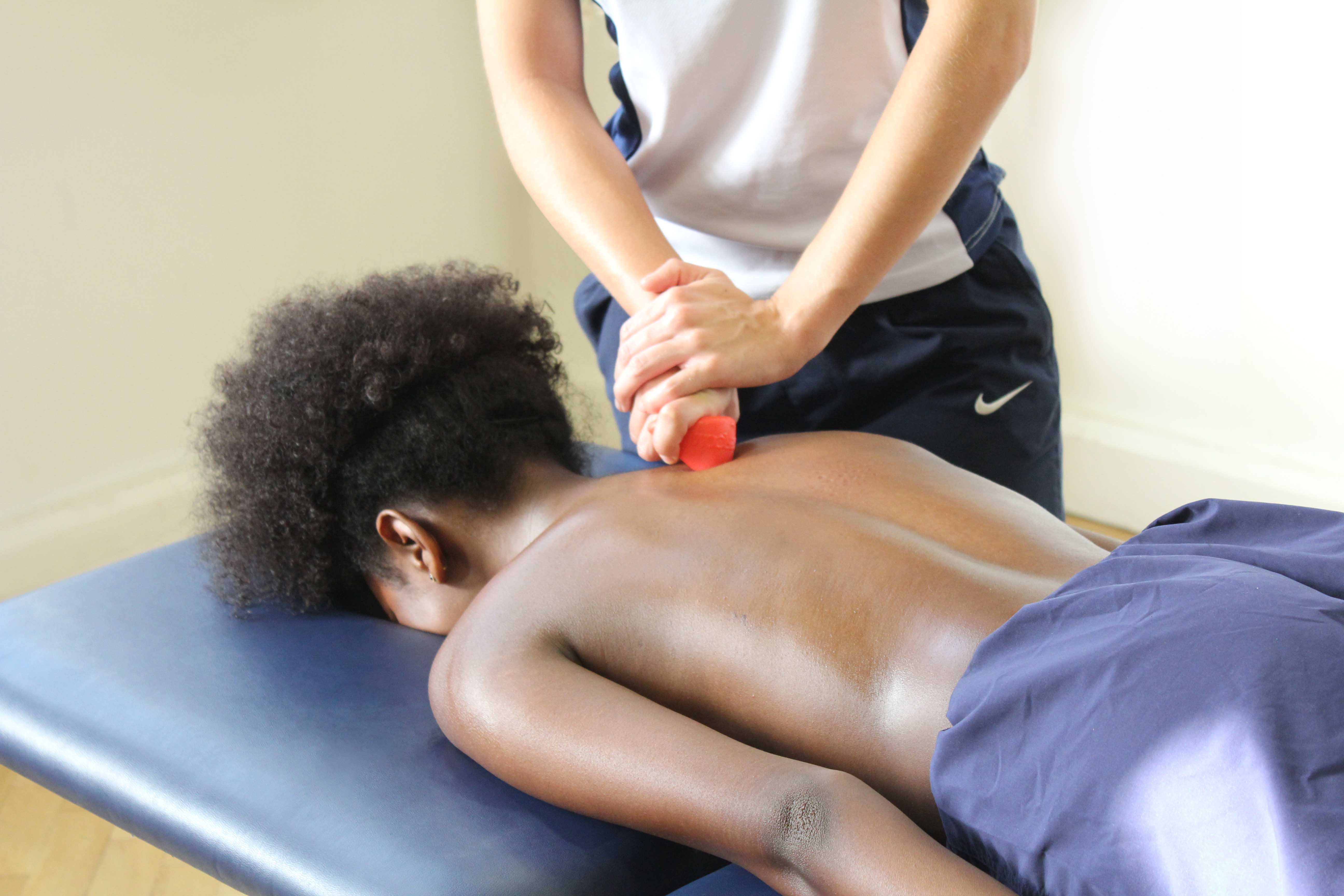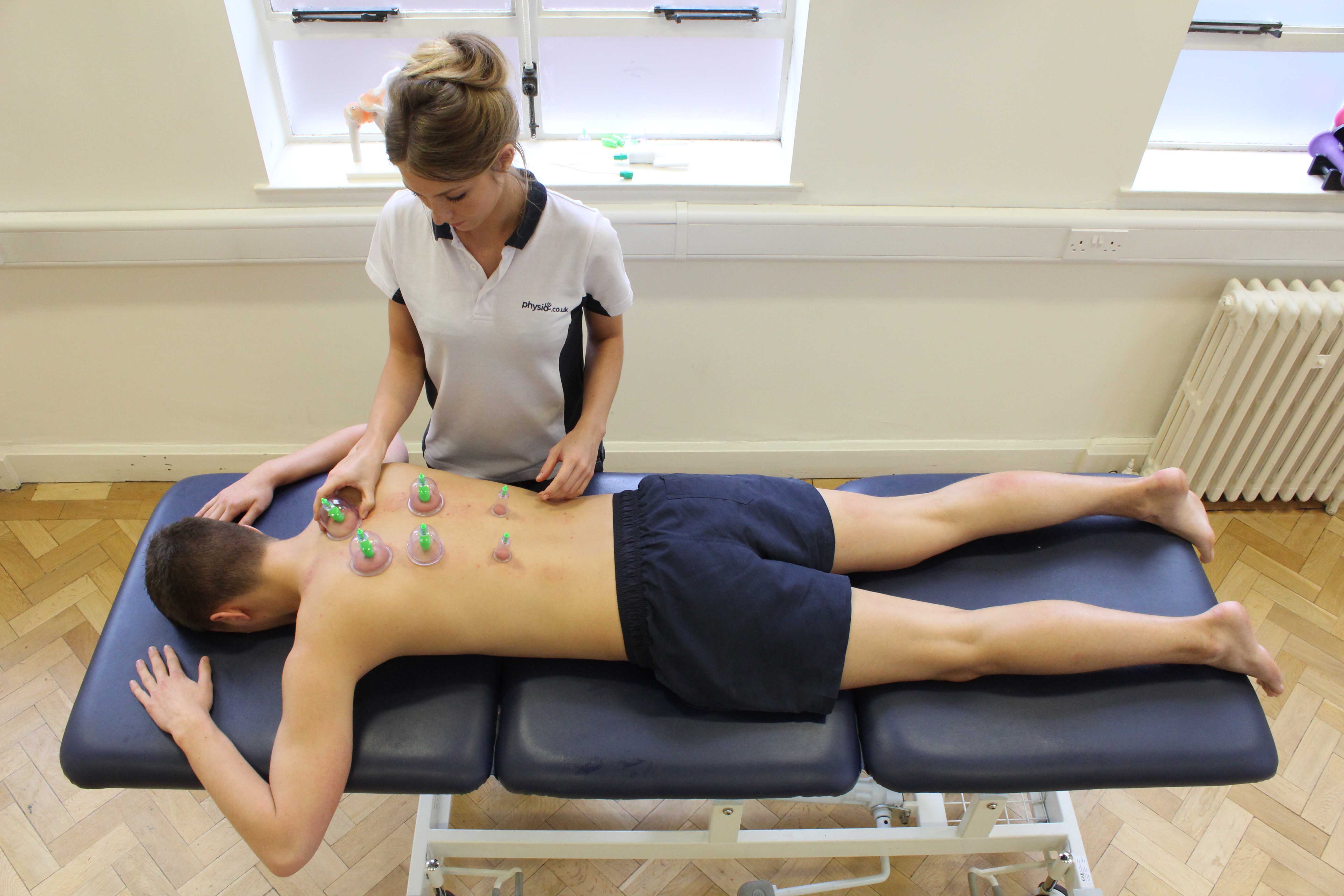What is T4 syndrome?
The upper back (thoracic spine) is made up of 12 vertebrae which are bones that act like building blocks to allow the spine to move and still provide support for the rest of the body. There are two types of joints connecting each vertebra. The facet joints connect the vertebrae at the side of the spine and the joints separating the discs and each vertebra at the centre of the spine. There are a number of nerves close to these joints and they sometimes become pinched or irritated. If this happened at the level of the fourth thoracic vertebra (T4) this is known as T4 syndrome. Physiotherapy is an excellent treatment for T4 syndrome.
 Above: Progressive strengthening exercises targeting the back muscles
Above: Progressive strengthening exercises targeting the back musclesWhat can cause T4 syndrome?
Sudden movements or movements that move the joints further than their normal range can cause damage to the nerves close to the joint. Heavy lifting, twisting and bending movements can put additional strain on the joints and their corresponding nerves. Poor posture for long periods of time can also lead to irritated and damaged nerves.
What are the symptoms of T4 syndrome?
Diffuse arm pain, pins and needles and numbness in the arm are common symptoms of T4 syndrome. This is because the nerves at the T4 level supply specific areas of the arm. You may also experience these symptoms in the neck, upper back and chest region. You may feel particularly stiff in the mornings and find it difficult to carry out bending and twisting movements without feeling pain or other symptoms. Sitting in one position for long periods of time could also be difficult and this may include driving, typing and housework activities. Other symptoms include:
 Above: Hacking percussion massage applied by experienced therapist
Above: Hacking percussion massage applied by experienced therapistWhat should I do if I have T4 syndrome?
T4 syndrome can be successfully treated with physiotherapy and therefore it is important to see a physiotherapist as soon as you notice any of the above symptoms. You should rest from any movements that cause pain and other neurological symptoms. Ice can be used on the affected area to help reduce any swelling. Pain killers may be needed during the first few days so that you can continue with your normal lifestyle.
What shouldn’t I do if I have T4 syndrome?
If you suspect that you may have T4 syndrome, you should avoid any activities that involve twisting, bending and heavy lifting as this will only make your condition worse. Rest from these movements will facilitate healing of the damaged area and help you recover as soon as possible. Driving and sitting for long periods of time should be minimised as much as possible to reduce the stress placed on the spine. If you have to drive or sit for any length of time, a good posture is essential and this can be achieved by sitting in a straight back chair with a lumbar roll in the small of your back.
 Above: Trigger point massage of the upper back muscles
Above: Trigger point massage of the upper back musclesPhysiotherapy for T4 syndrome.
Early strengthening and range of movement exercises are advised to minimise stiffness in the spine and prevent the condition getting worse. Cryotherapy (ice) may be used in the first 72 hours to reduce any swelling and heat may be applied to the area after this time to reduce muscle spasm and pain. Mobilisation techniques can be performed on the spine as well as local massage. Other treatments include:
Can T4 syndrome have any long-term effects?
T4 syndrome is successfully treated with physiotherapy and can be resolved within a month if the treatment programme is effective. However, if the symptoms are not treated quickly, the condition will get worse and you may find it difficult to lead a normal active lifestyle without experiencing pain and discomfort.
 Above: Cupping massage technique applied to the upper back muscles
Above: Cupping massage technique applied to the upper back musclesTo arrange a physiotherapy appointment call Physio.co.uk on 0330 088 7800 or book online.

 0330 088 7800
0330 088 7800


































